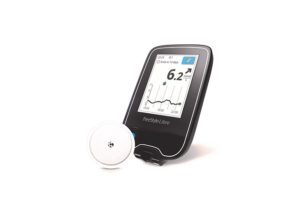
The analysis of 75 real-world observational studies of the FreeStyle Libre continuous glucose monitoring (CGM) system demonstrated significant reductions in glycated hemoglobin (HbA1c) sustained for up to 24 months in adults with both type 1 and type 2 diabetes.
Results from the Abbott Park, Illinois-based company’s meta-analysis were presented today at the Advanced Technologies & Treatments for Diabetes (ATTD) Congress in Barcelona.
According to a news release, after three months of using the FreeStyle Libre system, adults with type 1 diabetes had their HbA1c levels reduced by 0.53%, while type 2 diabetes patients saw a 0.45% reduction — both of which represent clinically significant reductions of the average glucose levels toward the internationally recommended HbA1c goal of 7% for adults with diabetes.
Those reductions were sustained for up to 24 months for the type 1 population and up to 12 months for the type 2 population, which reflects the duration of the studies available for analysis. The reductions followed a similar pattern for both types of diabetes, demonstrating that type 2 diabetes patients who use insulin benefit from FreeStyle Libre in a similar way to those with type 1 in a real-world setting.
FreeStyle Libre includes a sensor applied to the back of the upper arm for up to 14 days for continuously measuring glucose while paired with a reader or compatible smartphone for displaying glucose readings. Currently, Abbott said, the system is reimbursed for all people with type 1 diabetes in European countries, but those with type 2 can only get reimbursed if they meet certain criteria levels, including using insulin several times per day or having poorly controlled HbA1c levels.
“Our FreeStyle Libre system is the most widely used wearable glucose monitor with proven clinical and real-world data from more than 1 million users,” EMEA Medical Director for Abbott’s diabetes business Alexander Seibold said in the release. “It provides people real-time insights into how their glucose levels are affected by their daily routines, empowering them to make healthy adjustments and see the benefit to their health and life. It puts people with diabetes in control of their health.”

